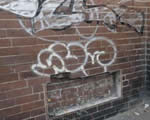 Go to main content
Go to main content
Archive Website of the UK government
Please note that this website has a UK government accesskeys system.
Main menu
Page menu
Crime and justice

Reporting anti-social behaviour

If you’re faced with noisy neighbours, or you’ve seen someone littering, drawing graffiti, or committing other acts of anti-social behaviour, you shouldn’t suffer in silence. Find out how to let the police and other authorities know.
Tell someone what's happening
The first step is to speak to members of your local neighbourhood policing team. Those teams work closely with residents to help stop anti-social behaviour, so they need to know what's happening in your area. They can provide support and advice, and help you decide how to handle the situation. If you and your neighbour are tenants of a social landlord (the council or a housing association), you can also report it to your landlord.
If the anti-social behaviour is affecting your quality of life, or making you fear for your safety or the safety of others, contact your local police station directly. Staff working there will help you file a complaint.
Gathering evidence
When police are made aware of anti-social behaviour, they’ll ask you to log the behaviour, and to keep them informed of what’s happening. They need to have enough evidence about what’s going on to take legal action against the people causing the problems.
Any police action will depend upon the circumstances and how serious the problem is.
If the problem is noise-related, your local council could become involved, as councils, rather than police, often deal with noise problems.
Punishments for anti-social behaviour
Once you've got your log of information about what’s been happening, you can take it to the police and your local council. They should take action to punish the people who have been behaving aggressively or destructively.
Those causing the problems could receive any of a number of punishments, including jail.
Some of the most common punishments for anti-social behaviour are listed below.
Acceptable Behaviour Contract (ABCs)
This is a written agreement between the person who has been causing the problems and their local council or police. These contracts are designed to give those involved the chance to acknowledge their actions, and to take responsibility for the impact they’ve had on others.
In some cases, this simple agreement can stop the bad behaviour at an early stage.
These contracts explain that the activity must not continue, and explain what will happen if the contract is broken. They aren’t legally binding, but they can be referred to in court if the behaviour continues.
Penalty notices
Fixed penalty notices and penalty notices for disorder are one-off fines.
Fixed penalty notices are generally issued for environmental crimes like littering, graffiti, or noise nuisances.
Penalty notices for disorder are issued for more serious offences, like throwing fireworks, selling alcohol to underage buyers, or being drunk and disorderly in public. They can be issued to anyone over 16 years old, and the amount of the fine will depend on the behaviour involved.
Anti-social behaviour orders (ASBOs)
An ASBO is a court order banning anti-social behaviour, or preventing entry into an area where problems have occurred. The rules and restrictions of each ASBO are specific to the crimes involved, and they remain in place for a minimum of two years.
ASBOs are not criminal penalties, so they won't appear on a police record. However, not obeying the rules of an ASBO is a crime, and it can result in a fine or imprisonment.
Dispersal orders
Groups can be forced to leave an area (disperse) and not return if they are regularly loud, disruptive or destructive.
The ‘area’ in question can be anything from the space around a cash point to a whole neighbourhood, or even a borough. As long as there is strong evidence that those involved have been destructive and intimidating.
If a dispersal order is issued, the council must agree to it and the decision must be published in a local newspaper or in notices posted in the area. After that, the people involved will not be able to return to the location for the length of time set out in the order, which could be months or years.
 Facebook
Facebook Twitter
Twitter StumbleUpon
StumbleUpon Delicious
Delicious Reddit
Reddit